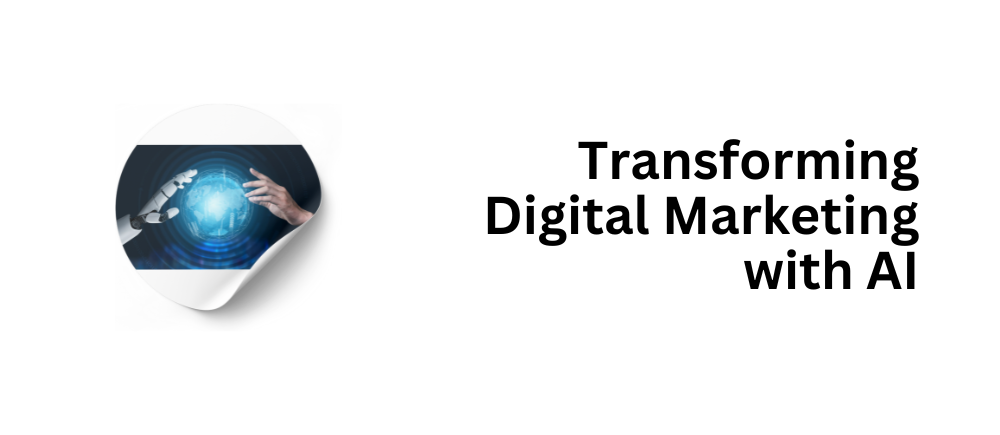AI Integration in Marketing: Revolutionizing Strategies for 2024
Artificial Intelligence (AI) has rapidly evolved from a futuristic concept to a cornerstone of modern digital marketing. In 2024, AI continues to reshape the landscape, offering innovative tools and strategies that enable marketers to engage audiences more effectively and efficiently. This blog explores how AI integration is transforming digital marketing and provides actionable insights for leveraging this technology to enhance your marketing efforts.
1. Personalization at Scale
AI-driven personalization is revolutionizing how marketers tailor their messages to individual customers. With advanced algorithms and machine learning, AI can analyze vast amounts of data to understand customer behavior, preferences, and purchasing patterns. This enables marketers to deliver highly personalized content, product recommendations, and offers, significantly improving customer engagement and conversion rates.
Key Strategies:
Utilize AI-powered tools like customer data platforms (CDPs) to aggregate and analyze customer data from various touchpoints. For example, Treasure Data's CDP helps in unifying customer data across all channels, providing a comprehensive view that enhances personalization efforts.
Implement AI-driven email marketing campaigns that personalize subject lines, content, and product recommendations based on user behavior.
Leverage AI for dynamic website content that adapts in real-time to individual visitor profiles.
2. Enhanced Customer Interactions with Chatbots
Chatbots have become a staple in customer service, but their capabilities have expanded far beyond basic inquiries. Modern AI-powered chatbots use natural language processing (NLP) to understand and respond to complex customer queries, providing a seamless and interactive user experience. These chatbots can handle everything from initial customer interactions to processing transactions, making them invaluable for 24/7 customer support.
Key Strategies:
Deploy chatbots on your website and social media channels to provide instant responses to customer inquiries.
Integrate AI chatbots with your CRM system to offer personalized assistance based on customer history and preferences.
Use chatbots for lead generation by guiding visitors through the sales funnel with tailored recommendations.
3. Content Creation and Optimization
AI is not only transforming how content is delivered but also how it is created. AI-powered tools can generate high-quality content, including blog posts, social media updates, and product descriptions. These tools use machine learning to understand context, tone, and audience preferences, ensuring that the content resonates with the target audience. Additionally, AI can optimize content for SEO by analyzing keywords, search trends, and user intent.
Key Strategies:
Utilize AI content generation tools to create initial drafts of blog posts, saving time and resources.
Implement AI-driven SEO tools to identify high-impact keywords and optimize content for search engines.
Use AI to analyze the performance of existing content and provide insights for improvement.
4. Predictive Analytics for Better Decision Making
Predictive analytics powered by AI allows marketers to make data-driven decisions with greater accuracy. By analyzing historical data and identifying patterns, AI can forecast future trends, customer behavior, and campaign outcomes. This enables marketers to proactively adjust strategies, allocate budgets more effectively, and optimize campaigns for better ROI.
Key Strategies:
Use predictive analytics to segment your audience and tailor marketing strategies to different customer groups.
Implement AI tools to forecast sales trends and adjust inventory and marketing efforts accordingly.
Leverage AI for A/B testing and real-time optimization of marketing campaigns based on predictive insights.
5. Automated Marketing Campaigns
Automation is one of the most significant benefits of AI in marketing. AI-driven marketing automation platforms can manage and execute complex campaigns across multiple channels without human intervention. These platforms can automate tasks such as email marketing, social media posting, and ad placements, ensuring consistent and timely interactions with your audience.
Key Strategies:
Implement AI-powered marketing automation tools to streamline repetitive tasks and free up time for strategic planning.
Use automation for personalized email campaigns that trigger based on user actions and behaviors.
Leverage AI to manage and optimize ad placements in real-time, maximizing your ad spend efficiency.
The integration of AI in digital marketing is not just a trend but a fundamental shift in how businesses engage with their customers. By harnessing the power of AI, marketers can deliver personalized experiences, enhance customer interactions, create and optimize content, make data-driven decisions, and automate complex campaigns. As we move further into 2024, embracing AI-driven strategies will be essential for staying competitive and achieving marketing success.
By implementing these AI-driven strategies, businesses can not only improve their marketing efforts but also build stronger, more meaningful relationships with their customers. The future of digital marketing is here, and it's powered by AI.
To discover more about how our AI-driven solutions can transform your marketing strategy, visit https://www.in.sb-telecom.com/digital-marketing/ and explore our comprehensive services


